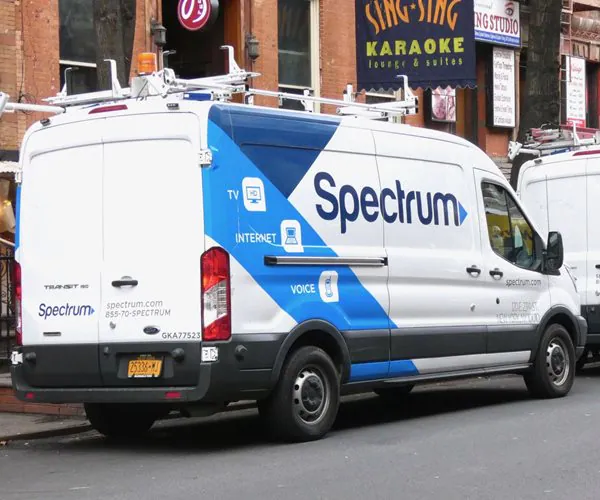Home » Tips and Tricks » Best Alternatives to Spectrum in NYC — What to Know Before You Switch 🗓️ September 29, 2025, By ✍️ Karly Wood
🗓️ September 29, 2025, By ✍️ Karly Wood
If you’re dissatisfied with Spectrum — due to pricing, performance, outages, or customer service — NYC actually has several good alternatives. But availability depends heavily on your specific address, building wiring, and infrastructure. Below is a breakdown of promising options, plus criteria to pick the right one.
Top Alternative Providers in NYC1. Verizon (Fios / Verizon Home Internet)Type: Fiber/fiber + hybridSpeeds: Up to ~2,300 Mbps in many NYC areas (or lower depending on plan)Pros: Very reliable, symmetrical upload/download in many cases, solid customer supportCons: Not every building is wired for fiber; may require installation work2. OptimumType: Cable + fiber (in select areas)Speeds: Up to 8,000 Mbps in certain locationsPros: Wide coverage, faster than many legacy cable plansCons: Fiber may be limited; cable performance impacted by congestion3. Xfinity (Comcast)Type: Cable / HybridSpeeds: Up to ~2,000 Mbps or more (in some markets)Pros: Broad availability, strong infrastructureCons: Upload speeds are lower; potential data caps or throttling in heavy use4. Astound Broadband / RCN NetworkType: Cable/fiber hybridSpeeds: Up to gigabit range in many neighborhoodsPros: Often competitive pricing, good customer service in NYCCons: Availability may vary by block5. T-Mobile Home Internet (5G fixed wireless)Type: Wireless via 5G networkSpeeds: Typical download ranges ~100–400 Mbps (varies)Pros: No physical wiring needed, quick setup, useful fallback optionCons: Performance depends on signal strength, network congestion6. Starry Internet / Fixed Wireless ProvidersType: Fixed wireless (line-of-sight)Speeds: Up to ~1,000 Mbps in some spotsPros: Good option in places where cable or fiber is tricky to deployCons: Must have a clear wireless path; subject to environmental interference7. Stealth CommunicationsType: Deep-fiber (for more commercial/dense residential)Pros: High-end speeds, often used by businesses or premium residential complexesCons: Not available everywhere, installation may be more complex and costlyType: Community-run mesh/wirelessPros: Grassroots, low-cost or donation model, local controlCons: Speeds and reliability vary; more experimental; ideal only if the options above are unavailableWhat to Consider When Choosing an AlternativeFactorWhy It MattersWhat to CheckAvailability at your addressMany providers serve only certain buildings or streetsUse provider websites, check with neighbors, ask building managementUpload speedUse provider websites, check with neighbors, and ask building managementImportant for video calls, cloud backups, and other applications.Gaming, streaming, and remote work depend on stable connectionsRead the terms carefullyCheck reviews in your neighborhoodLatency/reliabilityData caps/throttlingSome “unlimited” plans still slow you down after a certain usageInstallation cost & timeWiring or building work may be requiredAsk about free install or promotional creditsSupport & maintenanceQuality of customer service matters over timeFiber or hybrid providers often give better upload speeds than cable providersSteps to Switch or Try AlternativesCheck your address availability
Visit provider websites (Verizon, Optimum, Xfinity, etc.) and input your street number / ZIP to see what’s offered.Talk to building management/landlord
Ask whether fiber, coax, or other lines are already installed or can be installed.Request a trial / introductory plan
Many ISPs in NYC offer reduced rates or trial periods — test performance in your apartment before fully switching.Run speed tests & monitor performance
Use services like Speedtest.net during peak usage hours to see how the connection performs.Keep your Spectrum service active until the new service is verified
You don’t want to lose connectivity mid-month.Ask about bundling or discounts
Pairing your home internet with mobile or TV plans can often reduce monthly costs.Example Comparison (Hypothetical)
Let’s say your building address is in Queens, NYC:
Spectrum: 1 Gbps down / ~35 Mbps upVerizon Fios is available with a 940 Mbps symmetrical optionOptimum cable up to 1.5 GbpsT-Mobile 5G Home shows a strong signal from the streetAstound gig plan is offered for your block
In that case, Verizon or Astound may be your best alternatives. If running wiring is expensive, T-Mobile might serve as a fallback or secondary link.
Conclusion
While Spectrum is a major provider in NYC, it’s far from your only choice. Between fiber providers (Verizon, Optimum), cable hybrids (Astound, Xfinity), wireless options (T-Mobile, Starry) and even community mesh networks, you have several routes to explore.
The best pick depends on your specific address, building wiring, and usage needs. Use the criteria above, request trials, and compare real-world performance before making a final move.
